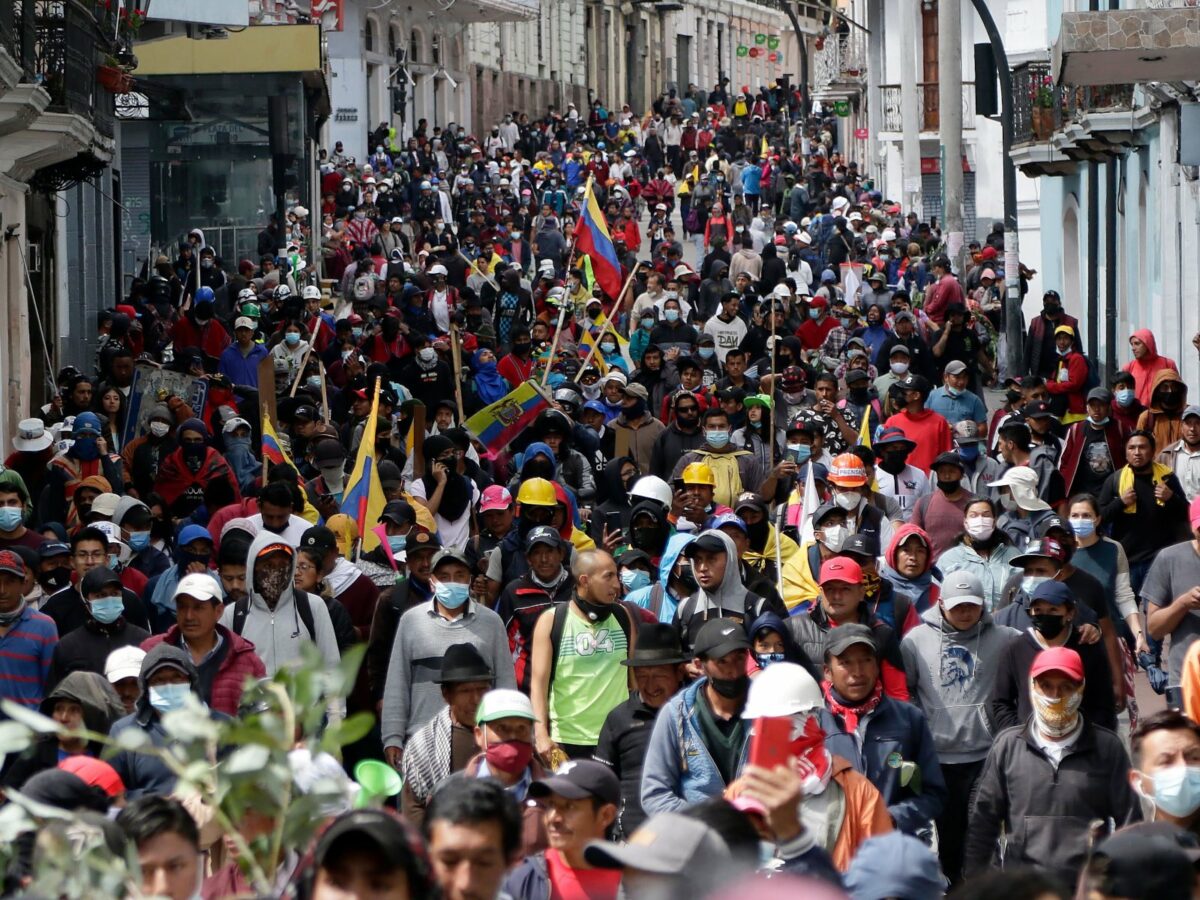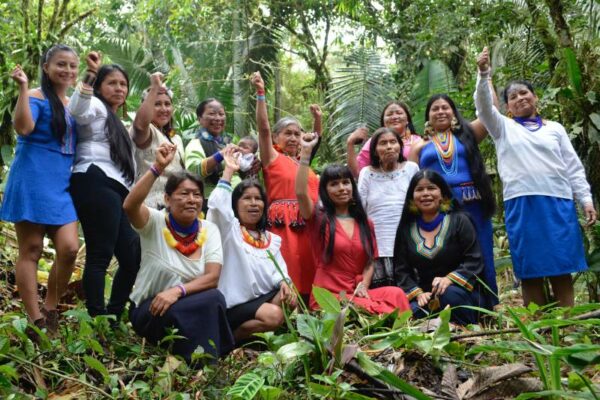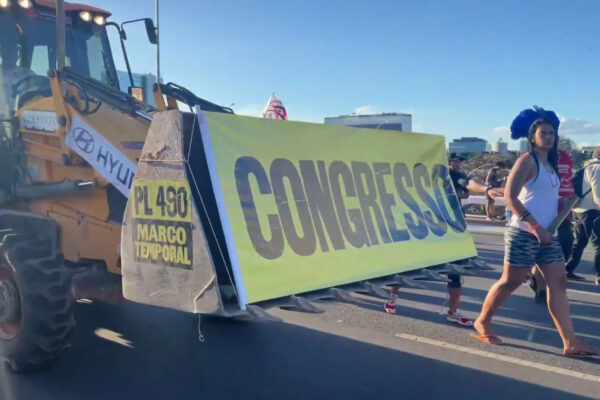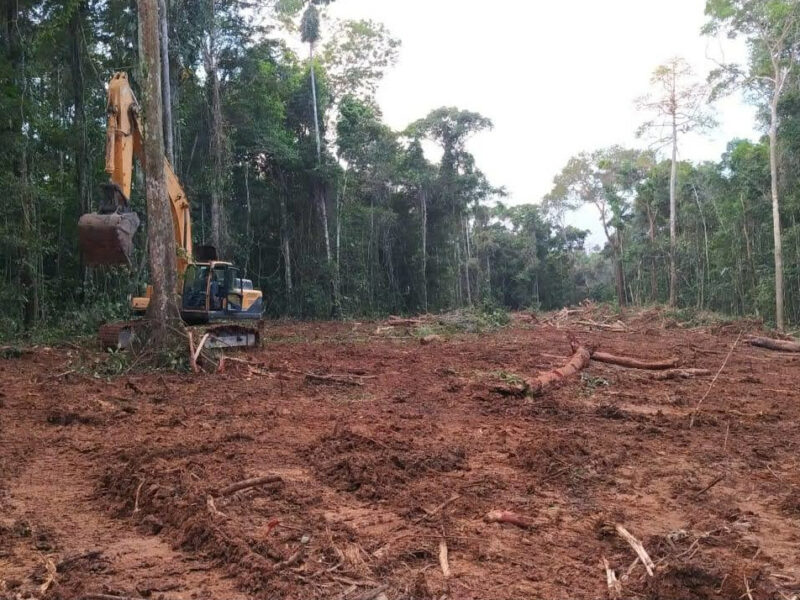On October 15, following a tumultuous and violent electoral process, Daniel Noboa was elected to be Ecuador’s new president. As the son of the banana magnate and repeated presidential candidate, he unmistakably represents the interests of the Ecuadorian business class and aligns closely with the neoliberal policies of the outgoing administration of Guillermo Lasso, who was the CEO of a major bank.
Noboa’s tenure will be a transitional government lasting only 18 months, due to Lasso’s declaration of a “muerte cruzada“ dissolving congress and convening new elections, and he faces seven pressing challenges concerning the Ecuadorian Amazon and the country as a whole. We question whether he will prioritize the protection of nature and the rights of Indigenous peoples as he promised during his campaign or – more likely – carry on with the extractivist agenda of prior administrations and continue to disregard Indigenous rights.
Among Noboa’s many immediate and critical challenges, we consider these to be the most urgent:
1. Implementing “Yes to Life, Yes to Yasuní” after the referendum: After the landmark referendum on August 22, where 60% of Ecuadorians voted against oil exploitation in Blocks 31 and 43 of Yasuní National Park, President Noboa faces the significant task of implementing this decision, which includes dismantling all existing oil infrastructure in the area and repairing the damage that has already been done. During the campaign, Noboa promised to respect the results of the referendum, but only because he wasn’t convinced that the oil in the Yasuní could be extracted for a profit. Remediating the existing contamination will be expensive, so he is unlikely to prioritize that without significant pressure.
2. Beginning an energy transition away from oil: Even if Noboa follows through on his campaign promise to close the Yasuní blocks, he could still promote other new oil blocks as he has stated publicly, for example in the southern amazon rainforest. Instead, he should begin a robust and comprehensive energy transition by not opening up any new oil blocks and starting to phase out all existing extractive projects.
3. Ensuring the Right to Consultation for Indigenous peoples: The outgoing government faced significant opposition over its attempts to undermine the right to Free, Prior, and Informed Consultation. The Ecuadorian Indigenous movement has been vocal in its demand for a comprehensive national law that recognizes this right and lives up to the requirements of the Ecuadorian constitution and international agreements, in stark contrast to Executive Decree 754 of outgoing President Lasso, which is being challenged as unconstitutional by Indigenous organizations.
4. Providing effective protection for human rights and Earth defenders: Despite Ecuador being one of the 15 countries that ratified the Escazú Agreement, the on-the-ground reality for Earth defenders paints a different picture. The country has become a far more dangerous place for those defending land and human rights, as the murder of Eduardo Mendua earlier this year demonstrates. The new government should implement effective protective measures and end the impunity for crimes committed against Earth defenders.
5. Halting mining activities in line with CONAIE’s demand for a mining-free Ecuador: With falling oil prices in recent years, there has been a growing push by Ecuadorian elites for large-scale mining. Simultaneously, illegal gold mining is on the rise. This has led to increased tensions, resistance, and conflicts over its potential and actual impacts on the environment and Indigenous rights. Following CONAIE´s demands, the Ecuadorian government should stop all mining in the Amazon, whether legal or illegal.
6. Protecting women’s rights: During the electoral campaign, both President Daniel Noboa and his running mate, Verónica Abad, made several misogynistic and discriminatory remarks against gender equality policies in the workplace. Given Ecuador’s high rates of gender-based violence, particularly against rural and Indigenous women and girls, the country urgently needs to prioritize these realities.
7. Implementing comprehensive policies against organized crime in collaboration with Indigenous peoples: In recent years, Ecuador has witnessed a significant surge in violence and crime. This increase presents numerous risks, especially since powerful illegal actors are often supported by government and business interests in their attacks against those defending rights and territories. And repressive measures implemented by the government today to combat organized crime are likely to end up being used to criminalize and repress human rights defenders later.
Taken together, these challenges represent an enormous undertaking for any executive, and many of them are clearly not Noboa’s priorities or he may actively oppose them. Indigenous, environmental, human rights, women’s rights, and social justice organizations are preparing to apply pressure so that the country can make advances in these urgent priorities over the next 18 months. As always, Amazon Watch will support our partners in both their immediate and long-term struggles, no matter who is in power at the moment.














